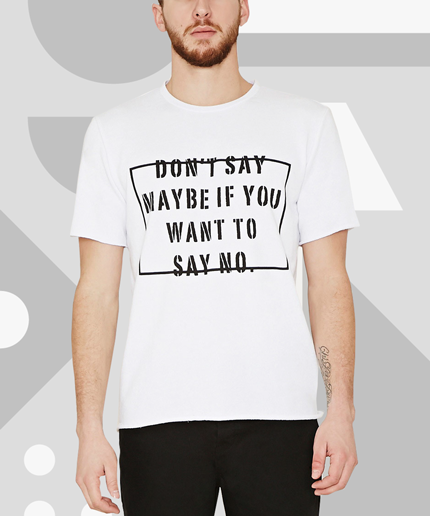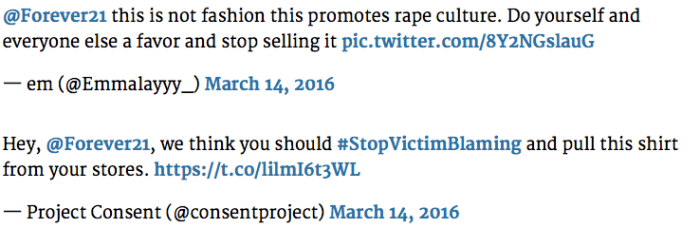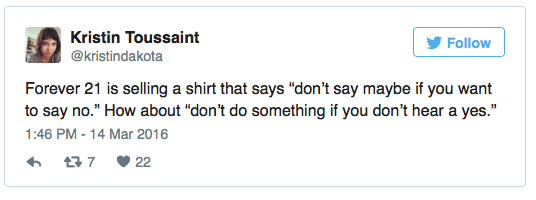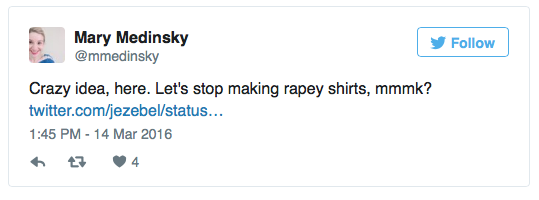
Sometimes political and social messages are best said on tangible paraphernalia such as a coffee mug, notepad, or T-shirt. Other times, it’s best left out of product development, where it can lead to sensitive matters that evoke a huge issue of offensiveness and doubt. Forever 21 is the latest clothing retailer to come out with something I’d argue as the latter.
 The company released a men’s T-shirt to be sold online and in stores, plastered on the front with, “Don’t Say Maybe If You Want to Say No”, clearly referencing the idea that has been circulating heavily around in the media on a women’s right to say no about sex, the sensitive (and many times, dismissed) topic of rape culture, and of course, the touchy subject of consent and if a woman (or man, to be fair) can renege on consent at any time.
The company released a men’s T-shirt to be sold online and in stores, plastered on the front with, “Don’t Say Maybe If You Want to Say No”, clearly referencing the idea that has been circulating heavily around in the media on a women’s right to say no about sex, the sensitive (and many times, dismissed) topic of rape culture, and of course, the touchy subject of consent and if a woman (or man, to be fair) can renege on consent at any time.
Critics have surfaced online, stating that the T-shirt supports or advocates the idea of rape because one shouldn’t have said ‘maybe’ in the first place, or that the shirt pre-blames victims for whatever consequences they are left to face after their ‘maybe’ is used as consent for sexual activity.


While the argument can be understood that perhaps the shirt aims to suggest that if you don’t want sex in the first place, one can merely say no, I think it was insensitive and completely offensive to even make a suggestion that a ‘maybe’ justifies, in any way, shape or form, action that can not be forfeited once someone says no. I also feel it’s a true slap in the face for all victims of rape, who have had something of theirs taken from them unwillingly, and yet, it was okay because they initially agreed to some level or degree.
Forever 21 has since removed the shirt from their inventory, publicly stating that, “Forever 21 strives to exemplify the highest ethical standards and takes feedback and product concerns very seriously,” Forever 21 said in a prepared statement to The Huffington Post. “With regards to the T-shirt in question, upon receiving feedback from our customers, we took immediate action to have it removed from our website. We sincerely apologize to anyone who was offended by the product.”
How do YOU feel about a T-shirt that references, subtly or not so subtly, the idea of rape culture that so many women and have men have vocalized in the field of consent and rights? Is the shirt victim-shaming, or is it really not that serious? Sound off!
